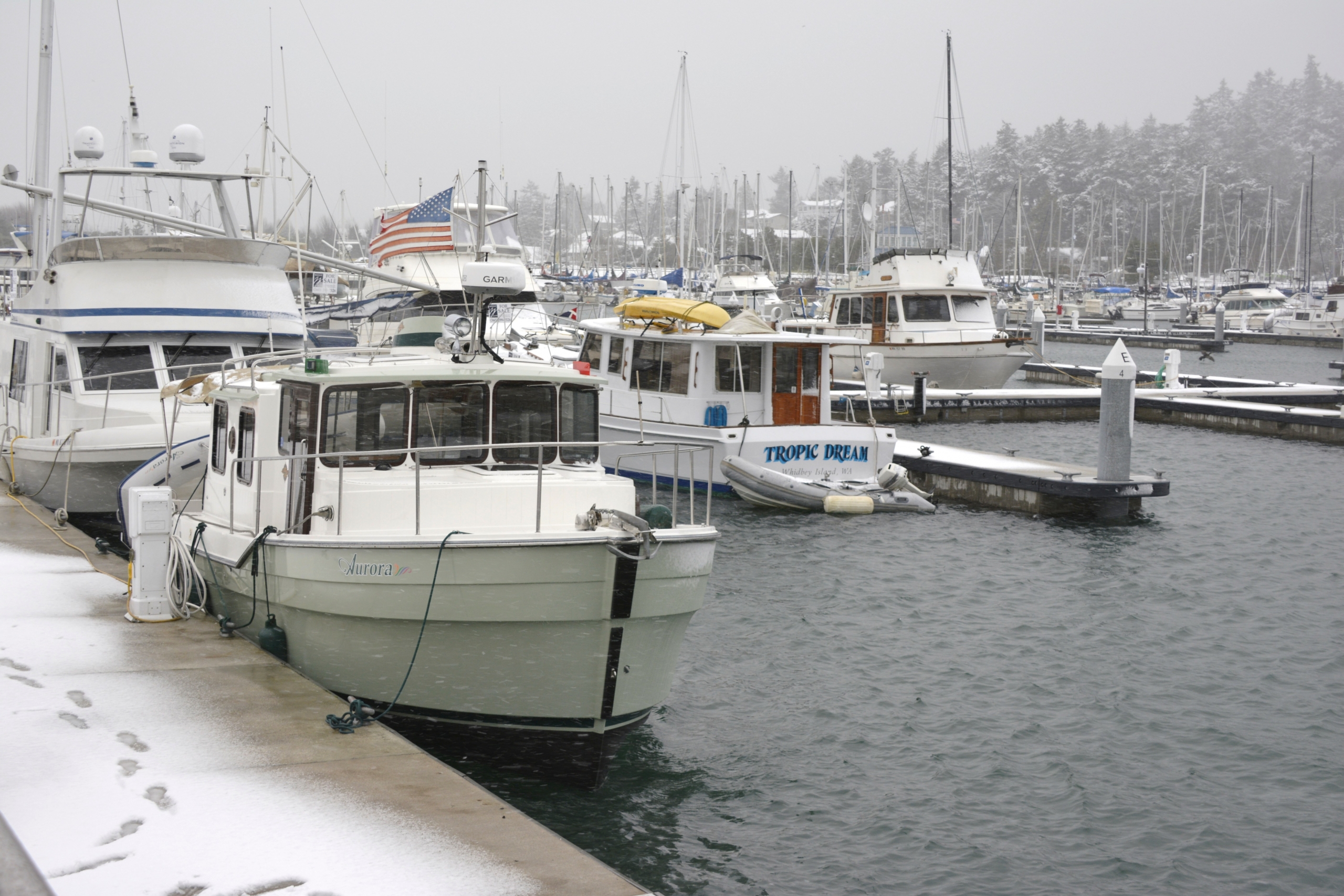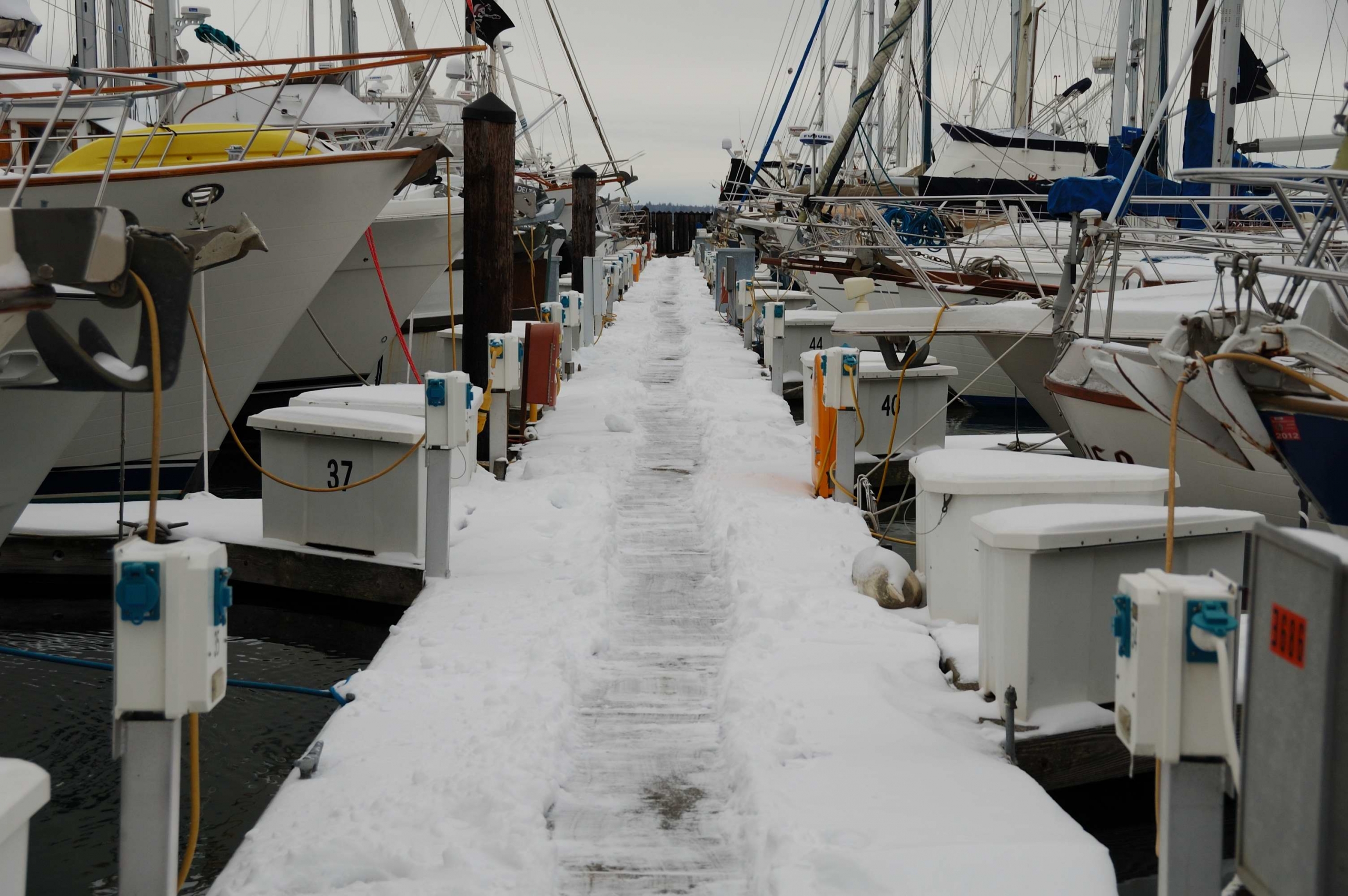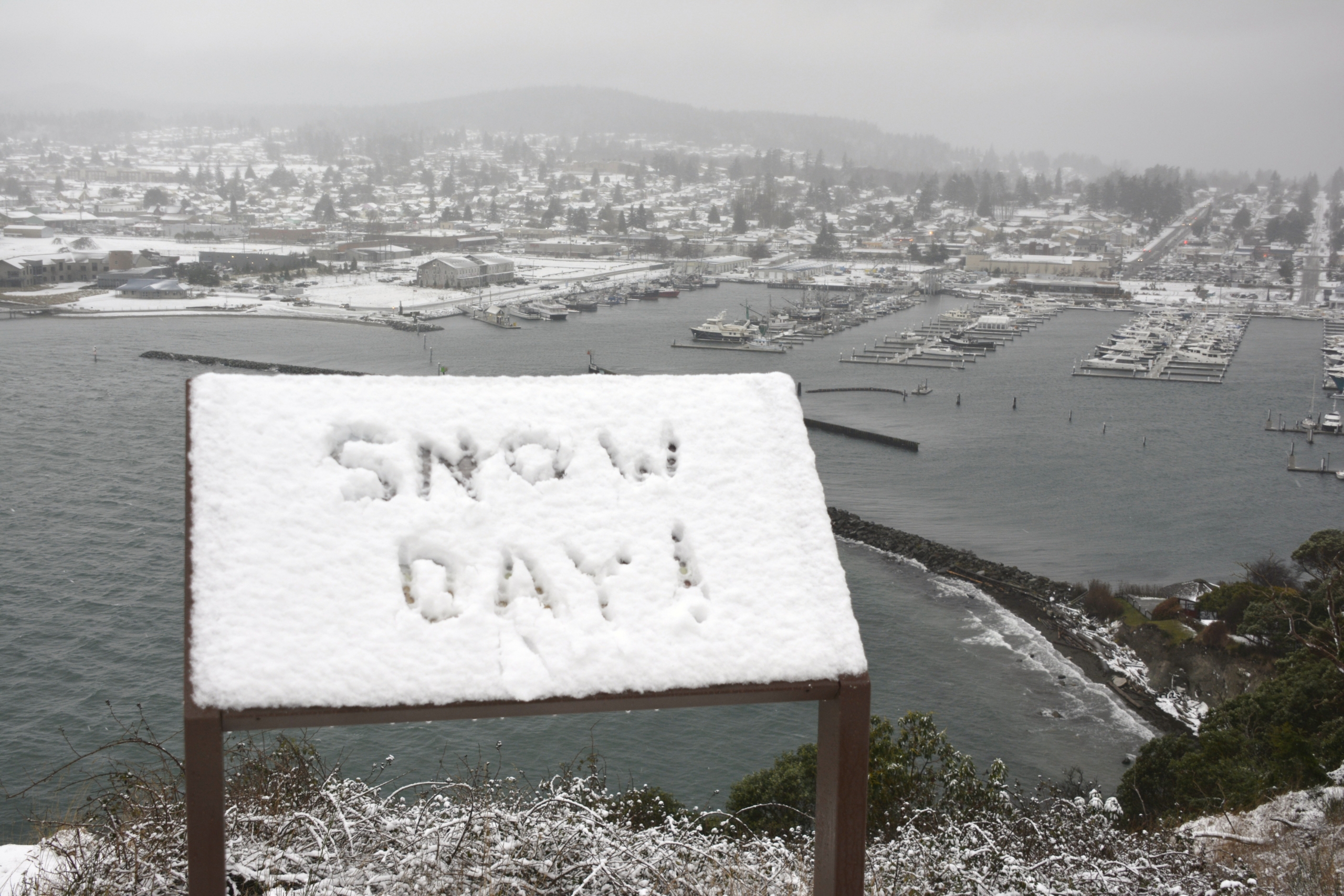Friendly Tips on Preparing Your Boat for Winter Storms
15th November 2021
While we like to think our mild West Coast winters means we don’t really need to decommission our boat, there are always times when winter sneaks in, and it is better to be safe than sorry.

One way to keep snuggled under the covers on those stormy nights is to make sure we’re prepared for the worst that winter can dish out. Here are some helpful hints to assure a good night’s sleep, no matter what the weather.
- Replace worn dock lines with a minimum of 1/2” line for vessels under 40’ and 5/8” line for vessels over 40”. Leave an extra line onboard, so the boat may be retied if necessary.
- Tie your vessel securely in the slip using only the cleats for your slip. Besides bow and stern lines, suggest a spring line be run forward and one run aft, to keep your vessel from coming in contact with the dock. Do not tie across the dock to another cleat as this is a trip hazard for your crew and other tenants.
- Check that the cockpit drain hoses are in good condition and properly clamped to their fittings.
- Secure your dock box lid.
- Remove or Secure bimini tops, dodgers, and any other canvas covers that may rip or blow off.
- On sailboats, secure sail covers, tie halyards away from the mast, remove and stow the furling jib.
- Secure your dinghy – onboard if possible.
- Close unused thru hulls and winterize below decks.
- Change oil and filters on your engine and generator. Acids build up quickly in engine oil and can damage vital engine parts.
- Fill fuel tanks and add an approved fuel stabilizer for your engine fuel type. These actions will help prevent condensation and slows the oxidation process.
- If you have an automatic bilge pump, manually lift the float switch to check that it’s operating correctly.
- Rinse and drain the holding tank with freshwater.
- Pour a cup or so of potable antifreeze in the toilet and pump the head to make sure the antifreeze gets distributed through the system.
- Remove valuable personal items and equipment. Lock up your dinghy, outboard, doors and hatches.
- In case of power loss to the docks, you may want to emphasize antifreeze protection, battery condition, and/or hire a Boat Watch service to monitor systems aboard your vessel.

Boat Heat:
- Inspect the shorepower cord plug and repair them as necessary.
- Let the Marina office know if your power box receptacle needs attention. Shore cord rating must match the breakers on the dock.
- Electric heaters and dehumidifiers should be marine grade and UL approved, with automatic shut-off switches.
- A thermostat controlled heater will help save electricity.
- Unattended diesel furnace heating of your vessel is not recommended as the heater may clog at low operating temperatures filling the vessel with soot and possibly creating a fire hazard.
Finally, don’t forget about your boat over the winter. It’s a good idea to stop by the marina once a week and make sure everything is just as you left it – safe, secure, and smelling fresh.
Don’t let the gravy boat on the holiday table receive more attention than your boat and you will sleep much better.

(Deane Hislop in partnership with Freedom Marine)


